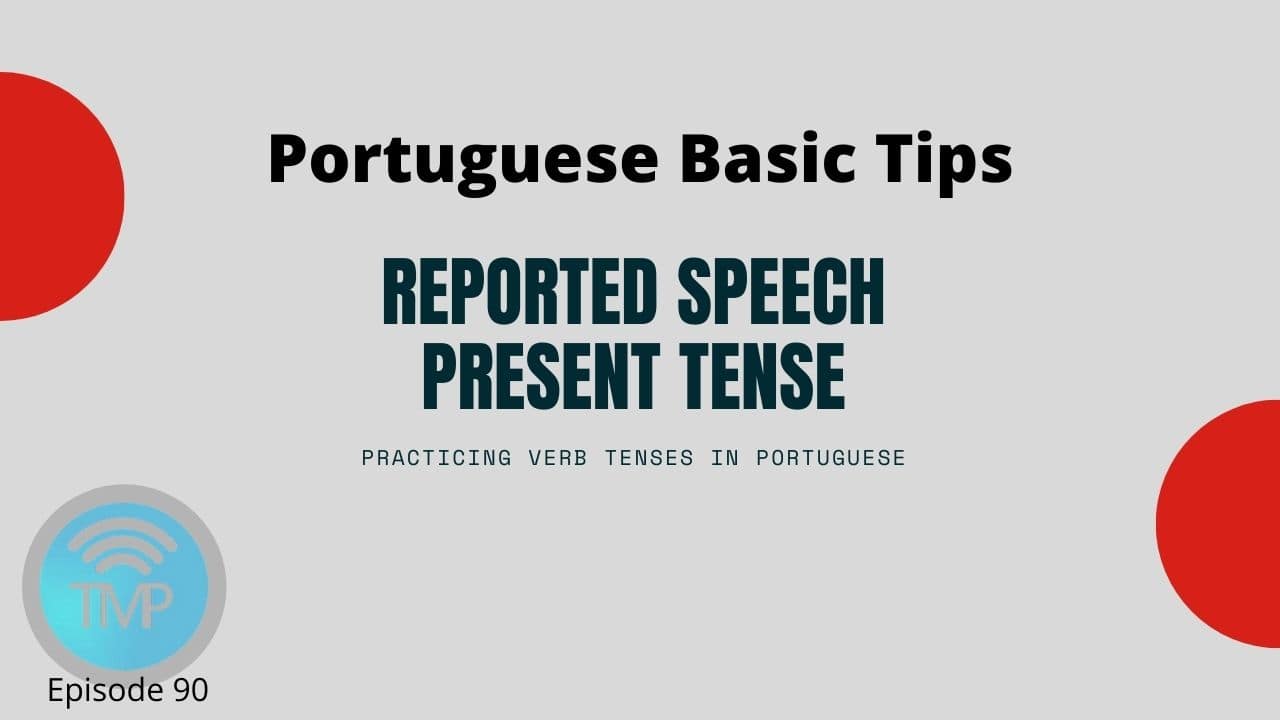Practicing verb tenses in Portuguese by using reported speech – Present Tense

Practicing verb tenses in Portuguese by using reported speech – Present Tense
Hello there and welcome to our Portuguese Basic Tips number 90, about reported speech in Portuguese
On today’s episode, we are going to speak about reported speech in Portuguese. I chose this topic, because knowing about it will help you to manage the use of verb tenses in Portuguese. Today we are going to speak about reported speech in the present tense.
Visit our previous episode, called Meaning of fazer a caveira, trocar em miúdos, sopa para o azar and flor que se cheire
First, let’s see what “reported speech means”.
In Portuguese we call it “discurso indireto”. This is a technic that many journalists use in their articles, for instance: they tell us what another person said, not what they think!
See:
- Eu gosto do Brazil! (I like Brazil)
That’s the original sentence! It seems kind of obvious, but try to imagine how a reporter would deliver this headline.
- Marcos disse que gosta do Brazil / Marcos said that he likes Brazil!
The original sentence turns into a new one, this time containing two verbs: “dizer” (to say) and gostar (to like).
Note that the first verb is always in the past tense, because we are talking about something that already happened: Marcos disse (Marcos said). The other verb, in this case, can be in the present tense, just like the original sentence, we just need to adapt it to the correct “person of the conjugation”. I mean: eu gosto (the first person), however a reporter would say “ele gosta” (the third person).
In order to have variety, instead of using “dizer” (to say), you can also use “ele falou” (he told), ele respondeu (he answered) and sometimes even “ele informou” (he informed).
Let’s practice a little bit. I say the sentence by using the direct speech and you change it to reported speech.
For instance, I say “Eu gosto do Brasil” and you say “Ele disse que gosta do Brasil”.
Sentences
Eu sei a resposta (I know the answer) / Ele disse que sabe a resposta (He said he knows the answer)
Eu sei falar português (I know how to speak Portuguese) / Ele disse que sabe falar português (He said he knows how to speak Portuguese)
Eu te ouço bem (I can hear you well) / Ele falou que me ouve bem (He said that he could hear me well)
Eu durmo cedo todos os dias (I sleep early every day) / He said that he sleeps early every day)
Become a Premium Member and download our full transcripts
That’s it for today!
See you soon!
Marcos Sales
Podcast (portuguesebasictips): Play in new window | Download







1 Response
[…] Visite nosso episódio anterior chamado Praticando tempos verbais em português: discurso indireto […]